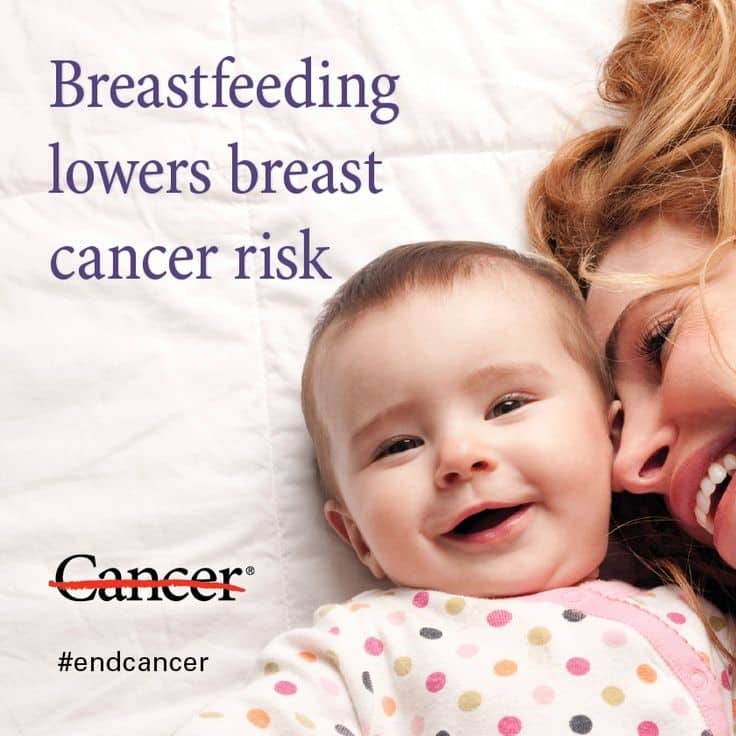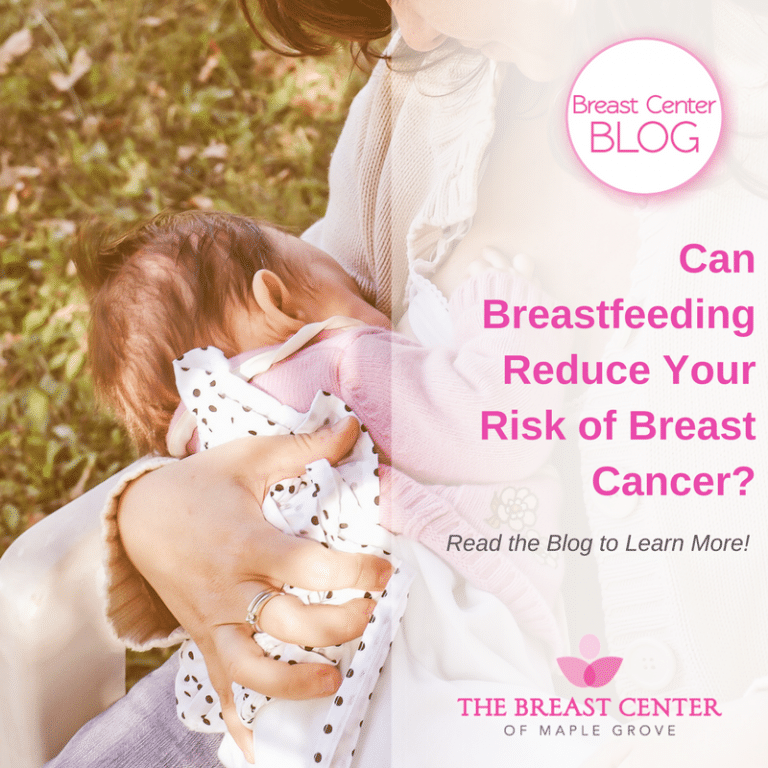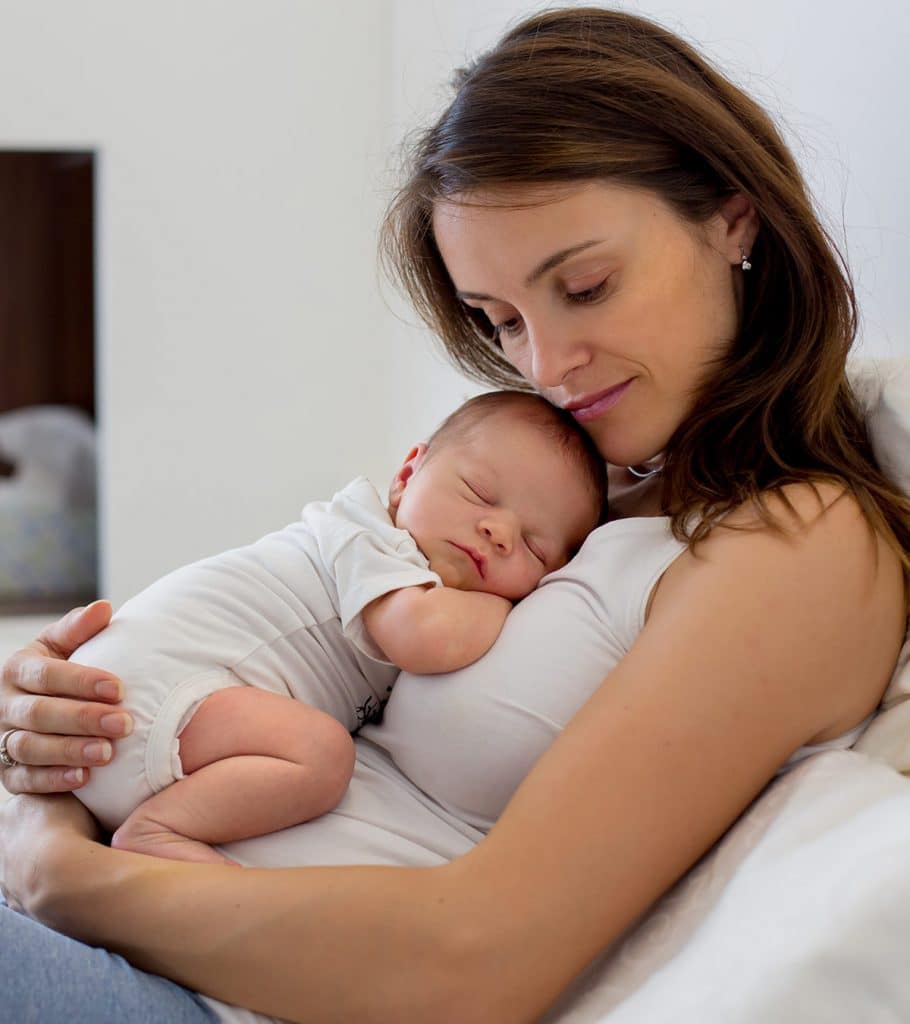Aspirin And Anti Inflammatory Drugs
Research has shown that women who regularly take aspirin or other non steroidal anti inflammatory medicines have a slightly lower risk of developing breast cancer. There are trials in progress that will give us more information in the future.
Remember that aspirin can irritate the lining of your stomach and cause bleeding. So you should talk to your own GP before starting to take it regularly.
You shouldn’t take these medicines if you have any history of stomach ulcers.
Other Benefits Of Breastfeeding
Ideally, infants should be exclusively breastfed from birth until around six months old. They can continue to consume breast milk along with solid foods until they area year old or even older. This is important to the overall health of the baby and should be done whenever possible.
The benefits of breastfeeding for the child are fairly well known. Babies who are breastfed have a lower risk for asthma, obesity, type 1 diabetes, ear and respiratory infections, sudden infant death syndrome, and gastrointestinal infections like diarrhea and vomiting.
What are less well known are the benefits of breastfeeding for mothers. Not only does it lower breast cancer risk, but breastfeeding also lowers the risk of ovarian cancer. Mothers who breastfeed are less likely to develop high blood pressure and type 2 diabetes.
How Does Breastfeeding Lower My Breast Cancer Risk
Here are three reasons researchers offer:
Read Also: When Do You Need Chemo For Breast Cancer
Other Factors Influencing Breastfeeding Duration
Some factors that influence breastfeeding duration include:
- Postpartum emotions: Baby blues and postpartum depression may make it hard for the mother to gather the energy to breastfeed. Postpartum depression can severely impact the mother and her choice to take care of the baby or breastfeed.
- Socioeconomic status and maternal employment: Women of lower socioeconomic status tend to skip or stop breastfeeding very early. If the mother has to return to work early, she may stop breastfeeding or may find it difficult to have time to pump breast milk.
- Mastitis: It is an inflammation of the breast tissue, which may be an infection and result in pain, swelling, redness, fever, or chills in certain cases. Mastitis commonly affects women who are breastfeeding.
- Latching issues
- Alcohol consumption or smoking
Summary: Does Breastfeeding Reduce The Risk Of Breast Cancer

Also Check: What Happens If Breast Cancer Is Left Untreated
We Dug Through The Complicated Research To Help You Minimize Your Risk
Most women can rattle off a couple benefits of breastfeeding: Fewer colds and illnesses? Yep. A precious way to bond? Definitely.
But things get a little murkier when it comes to one, potentially life-saving reason to breastfeed: a reduced risk of breast cancer. While plenty of research has established a link, it’s surprisingly hard to get straight answers. We sorted through the studies to give you the scoop.
Other Ways To Lower Breast Cancer Risk
Some women may be unable to breastfeed or may not have children. There are still ways they can lower their breast cancer risk. Living a healthy lifestyle that includes regular exercise, healthy and nutritious foods, and maintaining a healthy weight is beneficial in disease prevention in general.
Limiting alcohol intake can also help reduce breast cancer risk. Never smoking is a game-changer when it comes to preventing illness. If you do smoke, quit as soon as possible. Stay on top of breast cancer awareness, especially if your family history puts you at high risk for the disease.
Also Check: What Does Grade Mean In Breast Cancer
Breast Feeding Reduces Risk Of Breast Cancer Says Study
Breast feeding can significantly reduce the risk of breast cancer, according to a study by Cancer Research UK. The increase in the disease in developed countries is due to women having fewer children and breast feeding for shorter periods of time, the study says.
The research is a detailed analysis of 47 published studies, with nearly 150 000 participants, from 30 countries.
Breast cancer is the most common cancer in the United Kingdom, with more than 39 000 cases a year. Nearly a third are fatal. The research shows that the risk is reduced by 7% for each baby a woman has and that for every 12 months she breast feeds she decreases the risk by a further 4.3%.
Currently in the United Kingdom 69% of mothers start off breast feeding, but more than half have stopped after four months. The study says that if women breast feed each child for six months longer, 1000 cases of breast cancer a year could be prevented.
Lead researcher Professor Valerie Beral, of Cancer Research UK’s epidemiology unit in Oxford, said, “The results of this study are a major step forward in our understanding of why breast cancer incidence is so high in developed countries. It’s long been known that breast cancer is common in situations where women have few children and breast feed for short periods. We’ve shown that these factors alone account for much of the high rates of breast cancer in these settings.”
BMJ Publishing Group
Other Formats
Can Breastfeeding Reduce The Risk Of Breast Cancer
Breastfeeding can reduce the risk of developing breast cancer, but requires breastfeeding to be continuous for a relatively long time.
©2022 National Breast Cancer Foundation, Inc. is a non-profit organization with a 501 tax-exempt status. All rights reserved. Site by GLIDE.
We use cookies on our website to personalize your experience and improve our efforts. By continuing, you agree to the terms of ourPrivacy & Cookies Policies.
Don’t Miss: What Is Estrogen Fed Breast Cancer
How Many Women Breastfed For 3 Months
56.7 in the 364 women who hadnt had children or breastfed for fewer than 3 months. 55.5 in the 109 women who breastfed for 3 to 6 months. 65.4 in the 31 women who breastfed for more than 6 months. When the researchers compared women who smoked to women who didnt smoke, they found that smoking affected breast cancer risk more than breastfeeding.
Other Health Benefits Of Breastfeeding
Breastfeeding provides short- and long-term benefits for the baby breastfeeding protects the development of the immature immune system and protects against infections in infancy.
The benefits continue in to childhood and adulthood with lower risk of asthma and type 2 diabetes. For children, having been breastfed reduces the risk of being overweight or obese.
Excess body fatness tends to track in to adult life and can increase the risk of many cancers. Mothers who breastfeed have a lower risk of type 2 diabetes.
Also Check: When Can You Get Breast Cancer Age
Does Breast Cancer Go Up When A Woman Gives Birth
A study published this year by the Journal of the National Cancer Institute found that women of African ancestry have an especially high risk of developing the aggressive and hard-to-treat forms of breast cancer called estrogen receptor-negative and triple-negativeand the risk actually goes up when a woman gives birthbut breastfeeding negates this risk.
Treatments To Reduce Your Risk

Your level of risk is determined by factors such as your age, your family’s medical history, and the results of genetic tests.
If you have an increased risk of developing breast cancer, treatment is available to reduce your risk.
You’ll usually be referred for specialist genetic testing if it’s thought you have an increased risk of breast cancer. Healthcare professionals at these services should discuss treatment options with you.
The 2 main treatments are surgery to remove the breasts or medicine.
Don’t Miss: What Is The Mortality Rate Of Breast Cancer
Lactation And Ovarian Cancer
The mechanisms underlying a lower risk of ovarian cancer among women who have breastfed are not well elucidated.
One prevailing hypothesis is that breastfeeding is associated with longer periods of amenorrhea and therefore longer suppression of ovulation and decrease in gonadotropin levels and thus lower lifetime exposure to plasma oestradiol.
Does Breastfeeding Help Prevent Breast Cancer
Is it true that the longer a woman breastfeeds her babies, the lower her risk of breast cancer? Does it have any other effects on a mothers long-term health?
Andrew Weil, M.D. |September 29, 2017
Breastfeeding does appear to protect against breast cancer. It is also linked to lower rates of ovarian cancer, type two diabetes, cardiovascular disease, high blood pressure and high cholesterol.
Weve known for a long time that the more often a woman gives birth, the lower her risk of breast cancer. Research has shown that each birth can reduce a womans risk by seven percent and that the risk declines by another four percent for each year a woman breastfeeds her babies. Other research has shown that among women whose mothers or sisters had breast cancer, breastfeeding seems to reduce the risk of the disease by up to 60 percent.
In addition, compared to women who breastfed for a total of 18 months or more, those who never breastfed have a 1.5 percent higher risk of ovarian cancer. Some research suggests that the protective effect here is greatest among women who breastfed their last child.
Whats more, a study from the University of Pittsburgh, published in 2009, found that among 139,681 women participating, those who breastfed for a total of more than 12 months were less likely to develop type two diabetes, high blood pressure, or high cholesterol and were 10 percent less likely to develop cardiovascular disease compared to women who never breastfed.
Andrew Weil, M.D.
Read Also: Breast Cancer Shoulder Blade Pain
At What Age Is Breastfeeding No Longer Beneficial
The World Health Organization recommends that all babies be exclusively breastfed for 6 months, then gradually introduced to appropriate foods after 6 months while continuing to breastfeed for 2 years or beyond. Stopping breastfeeding is called weaning. It is up to you and your baby to decide when the time is right.
How Does Pregnancy And Breastfeeding Reduce The Risk Of Breast Cancer
The protective effects of an early full-term pregnancy and breastfeeding have been consistently seen in multiple countries and ethnic groups, suggesting that the protection results from biological changes in the breast rather than environmental or socioeconomic factors.,
The human breast goes through remarkable changes during a woman’s lifetime. During puberty increased levels of oestrogen and progesterone causes the breasts to enlarge. This is due to the development of the mammary glands and increased fatty tissue. The breast contains 1520units called lobes, the lobes of the breast drain into lactiferous ducts which lead to the nipple. Each lobe of the breast is made up of 2040 lobules, and each lobule consists of 10100 hollow cavities called alveoli. The alveoli are lined with epithelium which synthesises the protein and lipid components of breast milk. Elevated hormone levels during pregnancy causes the ductal system to expands and the alveolar epithelium and the breast increases in size. When breastfeeding stops there is a regression in the breast tissue but there is no substantial reduction of the mammary glands. The lobules in the breast involute as a woman ages with reduction in number of alveoli. Over time there is a replacement of the mammary glands with fatty tissue.
Don’t Miss: Fungating Breast Cancer Life Expectancy
What Is Breast Cancer
Breast cancer is one of the most common causes of cancer deaths in women. It is a disease that develops when abnormal cells in the breast begin to multiply and form a tumor. The form of the tumor can either be benign or malignant.
Where benign tumors grow slowly and do not spread to other parts of the body, on the contrary, malignant tumors are innately dangerous as they quickly spread beyond the original tumor to distant areas of the body.
The term Breast Cancer refers to a malignant tumor that is cancerous and develops from the uncontrolled growth of breast cells.
There are mainly two types of breast cancer:
Apart from these two types of breast cancers, there are several other subtypes of breast cancer, such as Tubular Carcinoma, Ductal Carcinoma In Situ, and Inflammatory Breast Cancer. These cancers either incorporate characteristics of the abovementioned cancers or have unknown origins.
Does Breastfeeding Reduce The Risk Of Breast Cancer
Research shows that breastfeeding mothers have a lower risk of developing pre and postmenopausal breast cancer.
This benefit increases with an increase in the duration of breastfeeding for more than 6 months.
Researchers have put forth several possible explanations to address the link between breastfeeding duration and breast cancer risk.
All these explanations revolve around exposure to one of the female sex hormones, estrogen.
Estrogen stimulates breast cell growth.
Women have lower levels of estrogen during breastfeeding periods.
This is because breastfeeding delays menstrual periods.
The lifetime exposure to estrogen decreases with longer breastfeeding durations, decreasing the risk of breast cancer.
During this process, it may also eliminate cells with damaged DNA that may lead to cancerous growth.
Lactation may also lead to changes in gene expression in breast cells.
This can decrease the risk of cancer development.
A meta-analysis study showed that breastfeeding contributed to a 20% reduced risk for triple-negative breast cancer and a 10% reduced risk for estrogen receptor-negative breast cancer.
Also Check: What Of Women Get Breast Cancer
Does Breastfeeding Really Reduce Your Risk Of Breast Cancer
Does breastfeeding reduce the risk of breast cancer?
Yes, it does, though the specifics are hard to pinpoint. There are four studies worth noting.
A large-scale analysis of nearly 150,000 women published in The Lancet in 2002 found that for every 12 months of breastfeeding , the risk of breast cancer decreased by 4.3 percent, when compared to women who didnt breastfeed at all.
Then a 2009 study of more than 60,000 women published in the Archives of Internal Medicine found that women with a family history of breast cancer reduced their risk of getting the disease before menopause by nearly 60 percent if they breastfed.
A study published this year by the Journal of the National Cancer Institute found that women of African ancestry have an especially high risk of developing the aggressive and hard-to-treat forms of breast cancer called estrogen receptor-negative and triple-negativeand the risk actually goes up when a woman gives birthbut breastfeeding negates this risk.
There seems to be growing evidence that breastfeeding is associated with a lower risk of the really aggressive kinds of breast cancer, says Alison Stuebe, M.D., an assistant professor of obstetrics and gynecology at the University of North Carolina at Chapel Hill and the lead author of the Archives of Internal Medicine study.
Why does breastfeeding reduce the risk of breast cancer?
How long should you breastfeed to reduce your risk?
But if you cant breastfeed
Dont stress about it.
Can You Breastfeed After Breast Cancer

Breastfeeding can be a challenge after a breast cancer diagnosis. After a double mastectomy, sadly, breastfeeding is impossible. After lumpectomy and radiation, the treated breast usually produces little or no milk, but the other breast usually can make milk normally. The milk from one breast may be enough or you may have to supplement with formula. Some women may choose to use a breast milk donor. An experienced breastfeeding coach can help you figure out the best possible solution for your unique situation.
Read Also: What Part Of The Body Does Breast Cancer Affect
Does Breastfeeding Reduce Breast Cancer Risk
This post may contain affiliate links
I was recently talking to someone about breast cancer awareness month which is happening right now, and it came up that breastfeeding reduces the risk of breast cancer. Okay, I have heard this but I never gave it much thought. We are always hearing about all the benefits of breastfeeding for our babies but I do not give much thought to the benefits for mom. I have explored it a little bit in the past and thought I would look into it again. This time specifically in relation to breast cancer risk.
Besides reducing your risk of breast cancer breastfeeding also benefits the mother by reducing the risk of postpartum depression, ovarian cancer and type 2 diabetes.